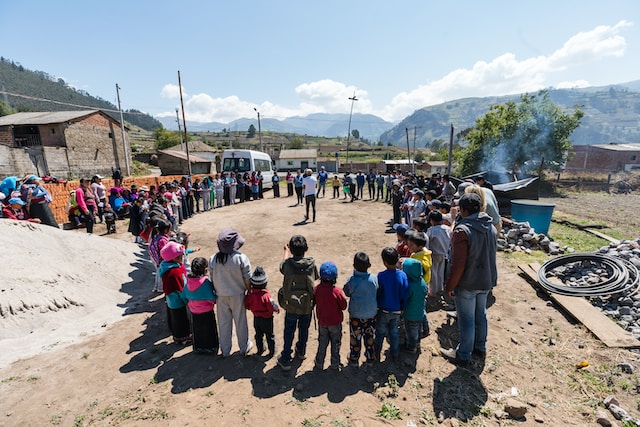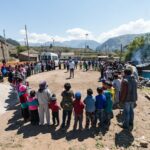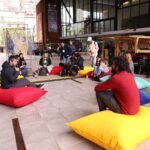- April 13, 2023
- Benjamin Pino

The role of local governments in migration
Migration brings with it many challenges that are as diverse as the people who migrate. Some situations require measures at the national level, but others can be addressed from more limited areas, understanding that local realities have specific needs. What is the role of local governments in this matter? The following are some of the key points and noteworthy experiences in Chile, Argentina and the United States.
The Hola America 2022 Festival generated a space to discuss the following topics
the role of governments in migration
moderated by Alexis Torreblanca, coordinator of Infomigra, who initiated the space by assuring that local offices and local governments should have a accurate and unique look at the challenges and solutions faced by historically vulnerable groups.
The panelists were Ingrid Robert, in charge of the community office for migrants of the Municipality of Valparaíso; Daniel Valdez, senior director of external affairs at the Municipality of Valparaíso; Daniel Valdez, senior director of external affairs at Welcoming InternationalRodrigo Ceballos, general director of International Relations and Cooperation of the Municipality of Córdoba (Argentina) and Rosario Olivares, deputy director of Gender equality, sexual diversity and inclusion of the Municipality of Santiago.
Seals and verifications
One public initiative that promotes the integration of people in mobility situations is the Sello Migrante (Migrant Stamp): a distinctive issued by the State of Chile, through the National Migration Service.The program is aimed at municipalities that work on inclusion for the migrant and refugee population with quality standards, focused on rights and non-discrimination.
The Municipality of Valparaíso has this seal. Ingrid Robert, representative of that municipality, assures that since 2017 it has sought to implement policies and strategies to address specific populations such as LGBTI+ people, indigenous populations and migrants.
In this process, says Ingrid, they have found a key role in generating community fabric and support networks with migrants and locals. Universities, local and national organizations and the migrant communities themselves have organized themselves to generate spaces for dialogue and joint work to define the path of their municipality.
Daniel Valdez brings an external perspective from the United States: he has sought spaces for dialogue for migrant populations and local communities, and believes that governments should guarantee the quality of life for all, providing opportunities for the exchange of ideas and improvements to social and economic systems.
Valdez’s organization certifies as welcoming communities those that welcome migrants. Currently, 16 U.S. cities have this certification and plan to reach 50 by 2025,and they intend to expand internationally.
Other considerations
Rodrigo Ceballos, meanwhile, comments that the leading role of cities in the development of public policies is due to the particular needs of the community in the city. When these needs are identified, a government plan can be designed to strengthen care and adequate support.
The support provided in Córdoba consists of clear and accessible information on different processes such as regularization, training for entrepreneurs, financial and labor inclusion, among others. These actions also promote interculturality at the social level.
Back in Chile, Rosario Olivares considers it necessary for the multidisciplinary work for a healthy coexistence, which solves particular challenges of different segments of the population. Olivares proposes opening offices that can adapt to changing needs and that can to address the particular needs of diverse groupsWomen, LGBTI+, children, people with illnesses or disabilities.
From his experience in Santiago, Olivares believes that the State must understand the complexity of migration and the multiplicity of its needs, and from that premise, understand that these situations cannot be resolved from a single office.
Remaining challenges
The panelists agreed on the challenge of taking actions to guarantee the migrant community at the local level that are not blocked or limited by policies at the national level, as is the case with the regularization of migrants.
In this regard, they believe that there is a need for clarity regarding autonomous local solutions, with state support, that are applicable regardless of changes in the administration of local and national governments.
Finally, they emphasize the importance of opening spaces for dialogue with the migrant community to identify their needs, focusing on human rights regardless of their regularization status, and understanding that it is a human group as diverse as their needs.


